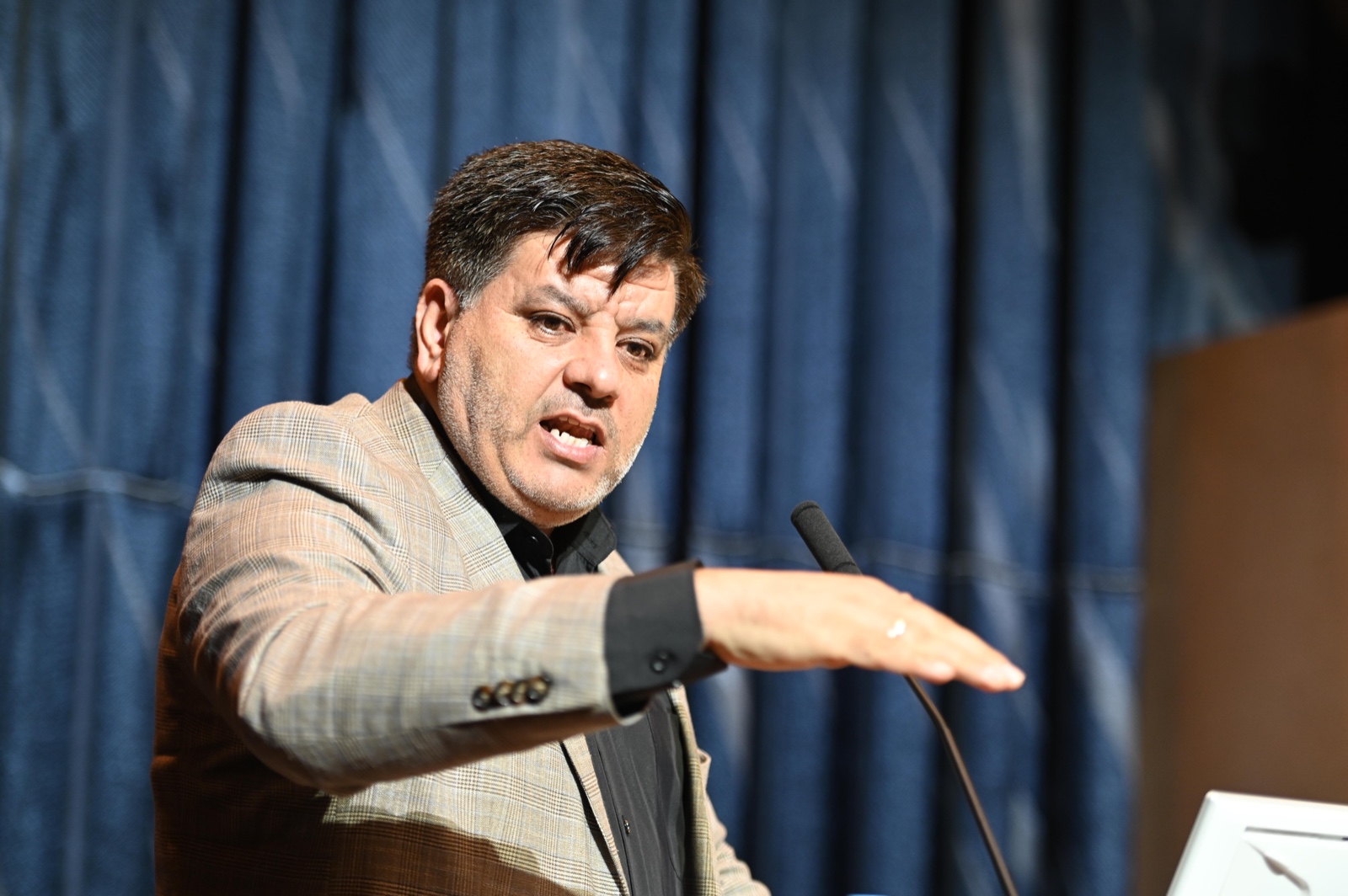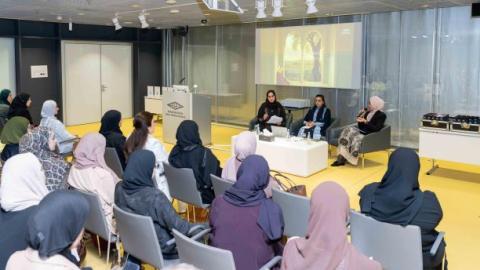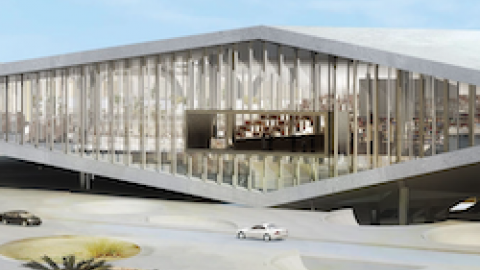
Qatar National Library, in partnership with Hamad Bin Khalifa University (HBKU), organized a poetry evening on 25 February to express solidarity with the Palestinian cause against the backdrop of the ongoing assault on Gaza.
Titled “If they ask you about Gaza…” the event at the Library marked the fourth instalment in the Cultural Salon series and featured a selection of verses by renowned poets Anas Al-Dogheim and Ahmed Al Muftah, who addressed the themes of struggle and resilience.
Mr Al-Dogheim and Mr Al-Muftah read some of their poems accompanied by the enchanting melodies of the oud. The event also featured an exhibition of the most prominent books from the Library’s collection on the Palestinian cause.
Mr Al-Dogheim, a celebrated Syrian poet whose works include the poetry collections Exile, Al-Judi and Ibrahim, and the novel Philosophers in Cell 25, was joined by Mr Al-Muftah, a Qatari poet, actor, theatre director, and author of the book Words Without Borders. He has also chaired the Drama and Texts Department at Qatar Radio since 2008.
His Excellency Dr. Hamad bin Abdulaziz Al Kawari, Minister of State and President of Qatar National Library, said the evening was the second event dedicated to Palestine as part of the Cultural Salon series.
“At Qatar National Library, we believe that the Palestinian cause is the cause of every Arab and Muslim. Today’s event represented a special occasion where we recited verses of poetry to remind everyone of the struggle, suffering and pain the Palestinian people have endured in a bid to regain their independence and land,” Dr. Al Kawari said.
“In today’s world, words resonate across media outlets, the Internet, and social networks, and sway public opinion. This is particularly true in the case of sincere poetry that expresses the longings of proud people and elevates important human values such as freedom, dignity, and independence. That is why we devoted a previous edition of the Cultural Salon to discuss digital content on Palestine, with the aim of identifying challenges and threats in the form of false and misleading statements by Israel and biased social media companies.”
Commenting on the evening, Mr Al-Dogheim said: “I have always touched on the Palestinian issue in my poems. Poetry has a special place in Arabic literature. Throughout history, poetry has served as a platform to influence, communicate and defend interests, as well as to attack enemies, particularly in times of wars and conflicts.”
“In this regard, I thank Qatar National Library for leveraging the power of poetry to denounce the brutal Israeli aggression against Gaza and express solidarity with the Palestinian cause, a position which is consistent with the pioneering role that Qatar has played in supporting and defending the Palestinian people and its international mediation efforts to end the war on Gaza.”
“I would also like to express my appreciation for the Cultural Salon initiative and its role in enriching the Arab intellectual scene,” Al-Dogheim added.
Mr Al-Muftah described the evening as “an opportunity to express our solidarity with Gaza and its people, who remain patient and steadfast in confronting this ongoing invasion and destruction”.
Al-Muftah said he was pleased to participate in this evening alongside Mr Al-Dogheim, whom he described as “a great Arab poet”. “I have been following him for a long time on social media because of the power of his words, the elegance of his voice, and his adaptation of language and poetry in writing creative poems,” he said.
Since the launch of the assault on Gaza, the Library has organized numerous events to raise awareness about Palestine and to emphasize its people’s deep-rooted Arab identity, which Israel is attempting to undermine. These include “Palestine’s Story”, a series dedicated to children and families, as well as the “Raising for Palestine” webinar, held in cooperation with Teach for Qatar, which featured educational tips and strategies when discussing the Palestinian cause with children and young people.
The Library also held a webinar titled “Palestine: Memory of Place and Meaning”, which shed light on the Palestinian cause within the context of contemporary Arab and Islamic history and with a focus on the rich heritage of Gaza.
In addition, the Library organized a captivating virtual journey led by Dr. Nadia Salem, a professor at DePaul University in Chicago, exploring the sacred Islamic sites within the historical landscape of Palestine from the era of Prophet Adam to Prophet Muhammad (PBUH) and his companions.
The Cultural Salon was launched with the aim of creating an open public space that promotes dialogue, enriches culture and raises public awareness.
For a complete list of all QNL events, please visit the Library’s website (www.qnl.qa/en/events) or the QNL mobile app, which is available globally to download for free from the App Store on iOS devices and Google Play for Android.







